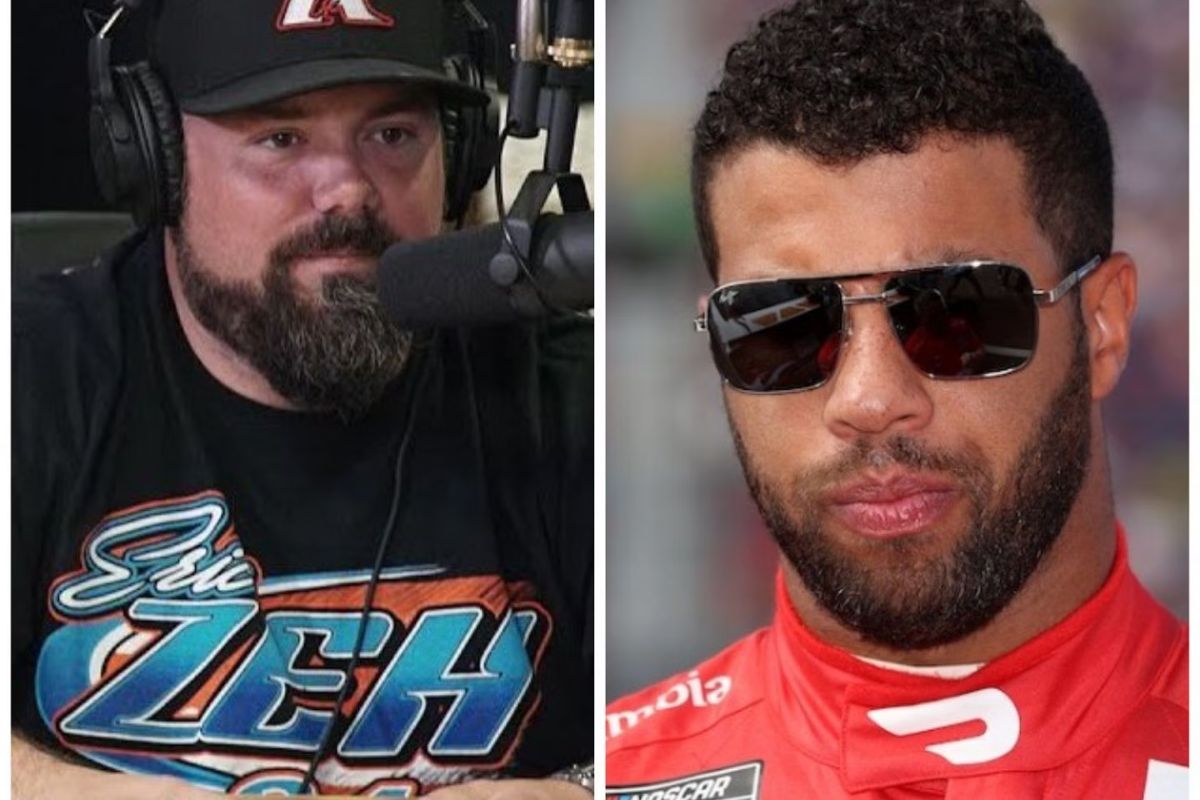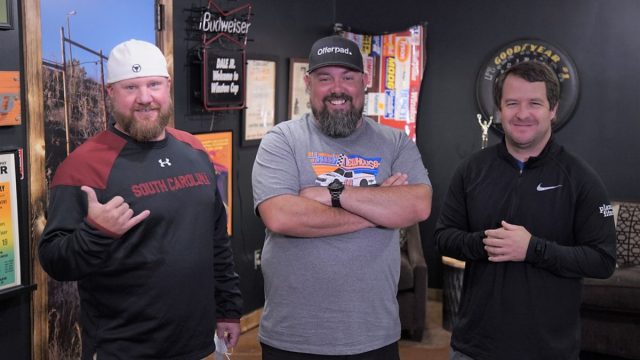Freddie Kraft Exposes NASCAR’s Inconsistency: In NASCAR, Freddie Kraft’s recent critiques concerning the inconsistent application of rules within the Truck Series have ignited a controversial debate among fans and insiders equally. By spotlighting the penalties imposed on Ty Dillon at Martinsville, Virginia, Kraft has not only questioned the fairness and transparency of NASCAR’s rule enforcement but also promote the need for equitable treatment across the board. This call for consistency speaks volumes about the underlying issues within competitive racing’s regulatory framework, prompting a deeper examination of how these inconsistencies might affect the sport’s integrity and the spirit of fair competition. The controversy surrounding Kraft’s statements invites further exploration into NASCAR’s decision-making processes and their impact on the racing community.
Key Takeaways
- Freddie Kraft criticized NASCAR for inconsistent penalties during a Truck Series event involving Ty Dillon.
- Kraft highlighted the penalties against Dillon as unfair, sparking debate over NASCAR’s rule enforcement.
- The critique focused on the need for transparent and consistent penalization to maintain competitive integrity.
- Kraft’s comments were part of larger concerns about perceived unfairness in NASCAR’s regulatory practices.
- The outrage indicates a broader call for equal treatment among drivers to enhance the sport’s integrity.
Ty Dillon’s Penalty and Freddie Kraft’s Reaction
In NASCAR Truck Series race of Long John Silver’s 200 at Martinsville Speedway, Ty Dillon’s penalties for improper lane changes became a focal point of controversy, drawing sharp criticism from veteran spotter Freddie Kraft for what he perceives as NASCAR’s inconsistent enforcement of rules. The incident, which saw Dillon penalized during a crucial moment in the race, has reignited a longstanding debate within the NASCAR community regarding the consistency and transparency of race control’s decision-making process.
“I thought it was funny that Ty got a penalty for changing lanes too soon late in the race when we were running 10th and it was a legit penalty. We couldn’t help but get penalties, we were trying to collect them for later. I have no problem with them penalizing us because what we did was wrong but then I go and look at a video and the #38… and you guys know this, when you get a long line, a lot of penalty trucks is a long line that’s not covered. Like there was the bottom line…so there’s like 7 or 8 trucks in line on the bottom with nobody outside of them.”
“So off of 4, they come to green, I always tell my guy “I know it’s very tempting, nobody’s out there, but make sure you stay in line until the start/finish line.” Off of 4 one time I see the #38 just come out, jump to the top, drive past 3 trucks on the front straightaway and I’m like, “Alright no penalty for changing lanes over there.” Then I see another guy do basically the same exact thing that Ty did. There’s other guys doing it…I don’t mind you calling penalties but if you call it on one guy you better call it on everybody.” -(Freddie Kraft)
The penalties imposed on Dillon for his lane changes were not only significant in their immediate impact on his race performance but also served as a catalyst for broader discussions among drivers, teams, and fans. The fact of the matter of the controversy lies in the perceived randomness of the penalties, with many questioning whether similar infractions in the past have been treated carefully or overlooked entirely.

Kraft’s Critique of NASCAR’s Verdicts
Freddie Kraft’s criticism of NASCAR’s penalty decisions highlights a deeper issue of inconsistency and perceived unfairness within the sport’s regulatory practices. Speaking on the Door Bumper Clear podcast, Kraft brought attention to several instances where NASCAR’s enforcement of rules appeared uneven. This critique sheds light on the need for more transparent and consistent penalization to maintain the integrity of competitive racing.
Kraft’s observations suggest a pattern where similar infractions result in disparate consequences, raising questions about the criteria used for judgment calls. The lack of predictability in enforcement not only frustrates competitors but also affects the perception of fairness among fans. An analytical examination of specific instances cited by Kraft could show the patterns of decision-making within NASCAR’s regulatory framework.
| Infraction Type | Penalty Outcome |
|---|---|
| Technical Violation | Varied suspensions |
| On-Track Behavior | Inconsistent fines |
| Pit Road Speeding | Disparate points deductions |
| Post-Race Inspection | Uneven disqualifications |
| Safety Protocol Breach | Irregular probation periods |
This table serves as a simplified representation of the disparities highlighted by Kraft. Each row emphasizes a different category where penalties could ostensibly be applied with more consistency. The goal of this analysis is not to undermine the authority of NASCAR’s governing body but to advocate for a system that guarantees equal treatment across the board. Such an approach would enhance the sport’s integrity and uphold its competitive spirit.
Freddie Kraft’s Fiery Comments
Building on his critique of NASCAR’s penalty decisions, Kraft also directed his attention to the dynamics of racer interactions and perceptions, specifically addressing Sam Mayer’s complaints about unfair treatment by Joe Gibbs Racing drivers during the short track racing at Martinsville. Kraft’s remarks serve to highlight the nuanced and often contentious nature of driver interactions in high-stakes environments such as NASCAR races. By dismissing Mayer’s claims, Kraft emphasizes a broader argument about the inherent challenges and competitive tensions that define short track racing, particularly at a venue as historically charged and technically demanding as Martinsville.
“I have news for Sam. They’re not picking on him because they knocked the **** out of each other as well. He wasn’t a lone wolf. That’s short track racing. That’s what it’s about. It sucks for Sam obviously but them guys it was just brutal up there. We’ve seen Sam fighting on pit road before so it’s not like he has been some angel in the past…it’s just part of the game.”-(Freddie Kraft)
Kraft’s dissection of Mayer’s grievances not only calls into question the validity of such claims but also situates them within the broader discourse on racing ethics and sportsmanship. In doing so, Kraft navigates the delicate balance between acknowledging the legitimate frustrations that can arise from the heat of competition and the need for a stoic acceptance of racing’s inherently rough-and-tumble character. His analysis is emblematic of a seasoned understanding of the sport’s dynamics, where the line between aggressive racing and unfair treatment can often blur amidst the adrenaline and ambition that fuel NASCAR’s competitors.

Kraft’s Defense of Short Track Racing
Addressing Sam Mayer’s grievances, Kraft robustly defended the inherent challenges of short track racing, highlighting its role in testing a driver’s adaptability and resilience. Kraft’s perspective sheds light on the essence of short track racing as not only a segment of the NASCAR series but as a fundamental crucible where the mettle of drivers is tested under high-pressure conditions. His emphasis on the unpredictable and competitive nature of short track racing emphasizes its importance in the motorsport world, offering a counterpoint to Mayer’s complaints.
Kraft’s advice to Mayer—to adapt rather than ascribe setbacks to external factors—speaks to a broader philosophy within racing: the necessity of flexibility and the ability to overcome adversity. This approach not only challenges drivers to enhance their skill set but also to develop a mental toughness that is critical for success in any competitive sport. By highlighting these elements, Kraft positions short track racing as not just a series of races, but as an essential component in the development of a driver’s career.
Kraft’s Reflection on the Weekend
Despite the weekend’s mixed outcomes, Kraft’s experience as a spotter ended on a high note with Bubba Wallace securing a commendable fourth-place finish. While the aftermath of the Truck Series race left a sour taste due to Ty Dillon’s disappointing result, Kraft’s reflection on the weekend revealed a complex blend of frustration and optimism. The contrast of results—from the disappointment in the Truck Series to the victory in the Cup Series—exemplifies the unpredictable nature of motorsport, yet also highlights the potential for rebound and success that exists within the competitive racing.
Kraft’s perspective on the weekend is not merely a tale of two races; it is a narrative that encapsulates the essence of perseverance in the face of adversity. The disappointment felt in one series did not hinder the collective spirit or diminish the resolve to excel in another. This resilience is a reflection of the team’s adaptability and Kraft’s ability to navigate the highs and lows inherent to the sport.

News in Brief
Freddie Kraft’s vocal criticism brings to light significant concerns regarding NASCAR’s penalization consistency, particularly within the Truck Series context. By examining Ty Dillon’s penalties at Martinsville and articulating the broader implications for the sport’s integrity, Kraft’s commentary emphasizes the necessity for transparent, equitable regulatory practices.
This case exemplifies the broader challenges faced by competitive racing in maintaining fairness and credibility, urging a reevaluation of enforcement mechanisms to guarantee uniformity and justice in the sport’s governance.
Our Reader’s Queries
Q: Who does Freddie Kraft spot for in the truck series?
A: In addition to my role as a spotter for Landon Cassill in the Kaulig Racing #10 in the NASCAR Xfinity Series, I also support Derek Kraus in the BMR #19 truck in the Camping World Truck Series. Furthermore, I co-host the Door Bumper Clear podcast every Monday on DirtyMo Media.
Q: Who is Bubba Wallace’s spotter?
A: 23XI Racing driver Bubba Wallace recently lauded his spotter, Freddie Kraft, highlighting his invaluable contributions during NASCAR Cup Series races.
Also Read: Bubba Wallace’s Attempt to Upset HMS: Inside the Martinsville Showdown!

